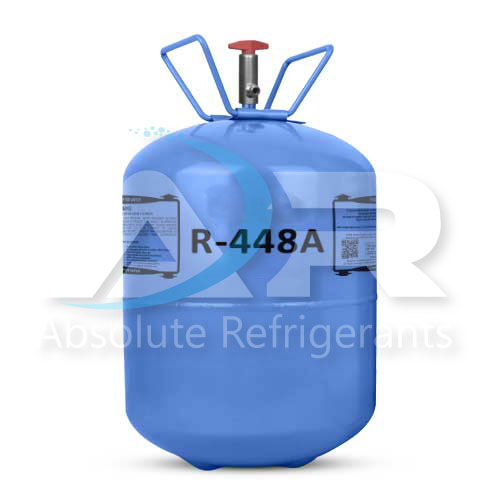
Refrigerants are crucial to the operation of air conditioners and various cooling systems. They typically exist in liquid or gaseous form. They are used to chill in a specific location.
These refrigerants are utilized in many different appliances, including air conditioners and other cooling equipment. They usually do this by changing a gas into a liquid and vice versa via the thermodynamic process known as phase changes.
While being extremely beneficial, these refrigerants are thought to play a substantial role in global warming. But as technology has developed, environmentally friendly refrigerants have begun to be used.
134A
This refrigerant is utilized in air-conditioned automobiles as well as in refrigerant pipework in commercial refrigeration systems. As for its characteristics, they include non-corrosiveness, thermal stability, non-combustible and low toxicity.
R-22
Although it is one of the refrigerants most frequently utilized in household heat pumps and air conditioning systems, leaks could result in ozone depletion. Because of this issue, no other options are available that provide the same results. Since long before 2010, HCFC-22 was prohibited from usage in air conditioners. Beginning in 2020, it will be possible to use it, but only if it is recovered and recycled for use in the same system.
410A
It is one of the refrigerants that are most frequently utilized. It typically comprises difluoromethane and pentafluoroethane, two hydrofluorocarbon refrigerants. The refrigerant R-410A is regarded as non-ozone depleting.
This refrigerant offers greater energy efficiency as compared to R-22 and R-407C. It is far more advantageous than R-22 and doesn’t include chlorine.
The manufacturers of air conditioners and refrigeration systems employ R-410 extensively. It is also one of the most widely used options for air conditioning, commercial refrigeration, and chilling units.
R454
R454 was developed as a replacement for 410A because it doesn’t have the chlorine found in 410A, making it safer. It has fewer ozone-depleting properties. As with 410A, it is used in homes, commercial air conditioning units, and some commercial applications.
404A
It was created to replace the R-22 and R-502 refrigerants used in commercial refrigerators for medium to low-temperature ranges. Because of its properties, it is ideal for use in ice machines, refrigerated vehicles, display cases, and other applications.
407C
It is intended to be used in new equipment as well as in HCFC-22 air conditioning, heat pump, and medium-temperature refrigeration equipment that is already in operation as a service refrigerant.
R448A
R-448A is designed to replace R-507, 404A, and R-22 in low- and medium-temperature refrigeration systems. Retrofitting R-22-based blends like R-402A/B and R-408A is another usage for it.
R438A
R22 is replaced by R438A, an HFC blend, in residential, commercial, and industrial air conditioning systems. It can also be used as a retrofit replacement for R22 in chiller systems and low- and medium-temperature refrigeration systems.
R422B
In new or existing R-22 residential and commercial air conditioning systems, as well as non-flooded evaporator chillers, R422B can be utilized to entirely replace R-22 refrigerant. Must be completely drained and recharged with 422B and cannot be added to R-22.
R507A
R-125 and R-143, a blend known as R 507 refrigerant, have no ozone depletion potential. Because of this, it is a safe replacement for several CFC and HCFC refrigerants, such as R-502, containing chlorofluorocarbons.
Furthermore, R-502, this hydrofluorocarbon (HFC), works well in commercial refrigeration systems used in supermarkets or transport refrigeration where safety is of the utmost importance.
When in doubt about which refrigerant to use with which type of system, Absolute Refrigerants is happy to help. We work with contractors, homeowners, and suppliers to improve their cooling systems. Our team of experts is here, always willing to assist whenever possible. Call 480-625-4214 today to find out more.
source https://www.absoluterefrigerants.com/what-are-the-various-types-of-refrigerants-and-their-uses/
No comments:
Post a Comment